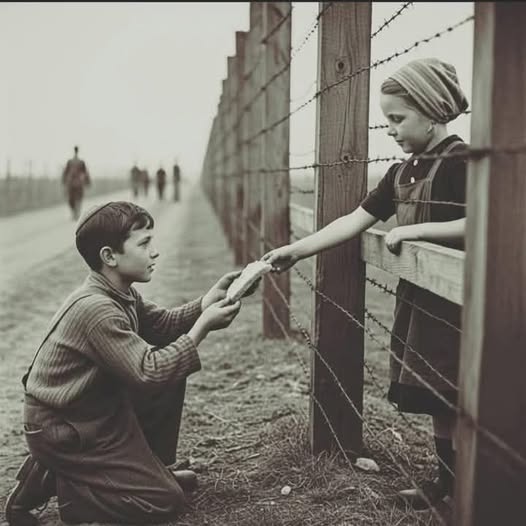In the Bergen-Belsen concentration camp in 1944, a young Jewish boy fought to survive the starvation and hopelessness. He found a small opening in the fence, and on the other side, a German farm girl, also a child, appeared, risking everything.
Daily, when the guards weren’t looking, she passed a small piece of bread through the crack. This small act of kindness kept him alive until the camp was liberated, a thread of hope in a world of fear and cruelty.
Years later, the boy, now an old man in New York, told this story at a Holocaust memorial. His voice shook as he spoke of the girl’s bravery and the bread that saved his life. A woman in the audience began to weep, then stood and said, “I was that girl.”
After almost fifty years, they finally embraced. In that moment, the bread became more than nourishment; it was a connection across time, a symbol of courage, compassion, and the lasting strength of human bonds. Even in the worst of times, small acts of bravery could endure, leaving a lasting impact long after the war ended.
